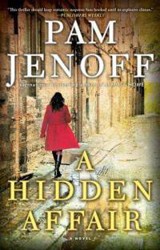Jonathan Blum’s novella, Last Word, is a humorous yet serious story about a Jewish parent struggling to connect with and understand his teenage son, who is obsessed with computers. The administration at Eric’s Jewish day school ends up blaming him for several computer-hacking incidents, which result in many unpleasant meetings involving the school’s staff, parents of the community, and Eric’s family. Sometimes the truth of the situation is difficult to determine because Eric rarely asserts his own claims. The reader is often unable to decode Eric’s thoughts; he tends to mumble, use short phrases, and let other people talk for him.
Eric’s father is somewhat ignorant of his son’s activities despite efforts to check on his son, causing the reader to think about how well parents can really know their children. Blum writes from Eric’s father’s perspective in a casual, conversational tone that is mimicked in the relationship between Eric and his father. Eric’s father sometimes tries too hard to be a jokester and to be liked by his son to notice when Eric really needs his father to be a good parent who will listen and offer practical advice. Eric’s father has good intentions though, and the reader begins to understand his point of view, even at times when his decisions seem flawed, which creates complexity and empathy for his character.
While the book focuses on the parenting of Eric and the unfortunate situations he has found himself in at his school, Blum also provides an insider’s perspective of a tight-knit, somewhat invasive Jewish day school community where everyone cares about Jewish education and everyone is also in everyone else’s business. Last Word makes the reader really think about who is innocent and how one event leads to another. Despite this book’s brevity, Blum is able to create a multi-dimensional family and community that come to life on the page. This book focuses on an emotionally charged and complex situation highly relevant to twenty-first century digital concerns, teenage bullying, and the parenting skills needed to help teens navigate this confusing time.
Related content:
- Day Schools and the End of the Melting Pot by Jonathan Krasner
- Memories of Hillel Academy, Part I by Joshua Braff
- Since You Left Me by Allen Zadoff
Jamie Wendt is the author of the poetry collection Laughing in Yiddish (Broadstone Books, 2025), which was a finalist for the 2022 Philip Levine Prize in Poetry. Her first book, Fruit of the Earth (Main Street Rag, 2018), won the 2019 National Federation of Press Women Book Award in Poetry. Her poems and essays have been published in various literary journals and anthologies, including Feminine Rising, Catamaran, Lilith, Jet Fuel Review, the Forward, Minyan Magazine, and others. She contributes book reviews to the Jewish Book Council. She won third prize in the 2024 Reuben Rose Poetry Competition and won second prize for the 2024 Holloway Free Verse Award through the Illinois State Poetry Society. Wendt holds an MFA in Creative Writing from the University of Nebraska Omaha. She lives in Chicago with her husband and two kids. Follow her online at https://jamie-wendt.com/ or on Instagram @jamiewendtpoet.





